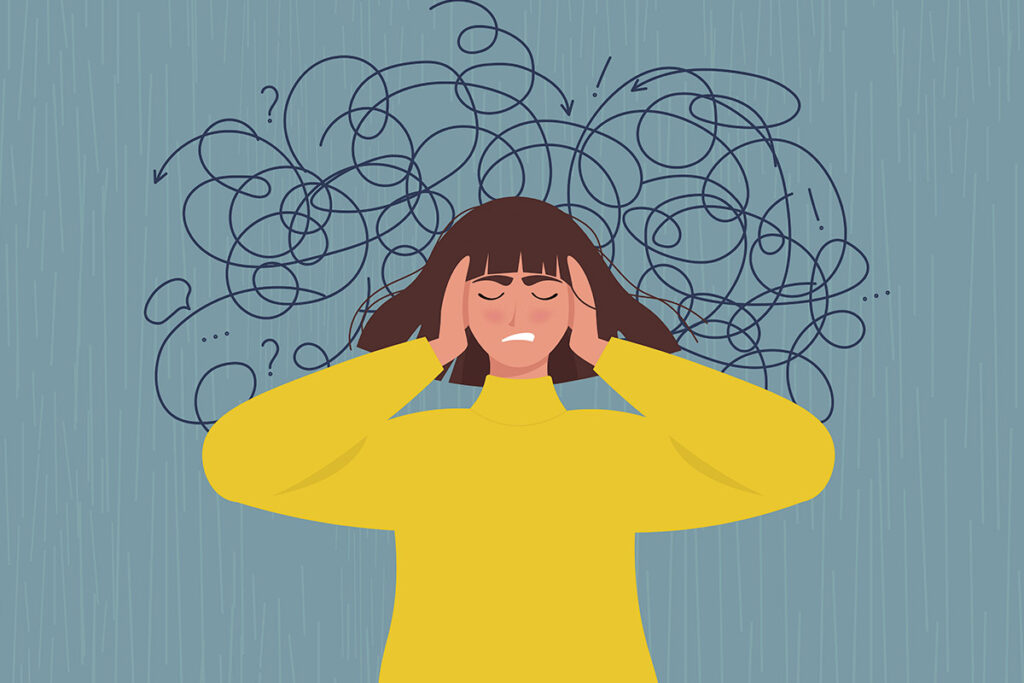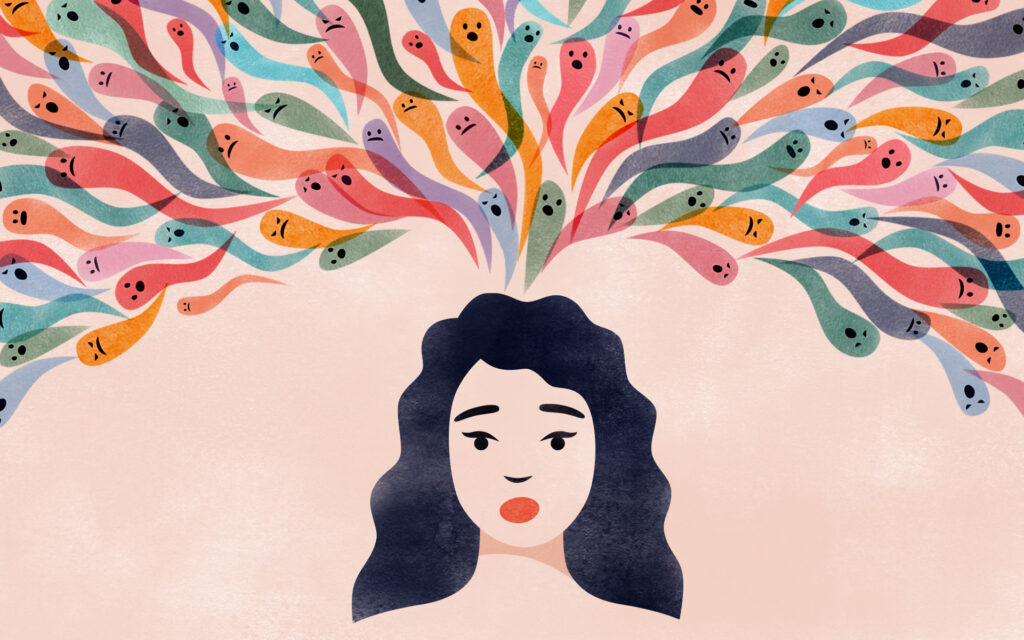Anxiety is a Mental Health disorder that can interfere with your ability to function.

What is Anxiety?
It is a normal reaction to stress or danger, alerting us to pay close attention. An anxiety disorder, however, is a type of mental health condition that can cause you to have frequent, intense worry, or excessive fear about everyday situations. With this disorder, you may experience physical signs, such as sweating or a rapid heartbeat for a matter of minutes. The feelings that come with anxiety make you feel as if you have no control and may avoid certain places or situations to prevent those feelings. Anxiety disorders are the most common of mental disorders and affect nearly 30% of adults at some point in their lives.
Types of anxiety:
- Generalized anxiety disorder
- Social anxiety disorder
- Specific phobias
- Separation anxiety disorder
The Effects of Anxiety on the Body
It can affect your body, and long-term anxiety heightens the risk of developing chronic physical conditions.
While most people may know about the effects of anxiety on mental health, fewer people are familiar with the physical side effects. Physically an anxiety attack can feel like it’s going on forever. When someone feels anxious, stressed, or scared, the brain signals other body parts. The signals communicate that the body should assemble to fight or flee. The physical symptoms themselves are so terrifying that many people assume they’re having a heart attack. It’s crucial to seek help if you’re starting to avoid certain situations or places because you’re afraid of having a panic attack. The truth is that panic attacks are highly treatable.
As our body’s fight-or-flight response, anxiety involves a range of physical symptoms such as:
- Pounding heart
- Sweating
- Headaches
- Stomach upset
- Dizziness
- Frequent urination or diarrhea
- Shortness of breath
- Muscle tension or twitches
- Shaking or trembling
- Insomnia
Anxiety Causes and Risks

Both genetics & environmental stress can cause anxiety
Like a majority of mental health concerns, anxiety disorders appear to be caused by a combination of biological factors, psychological factors, and challenging life situations Some risks are out of your control, but others you can change. Environmental stress causes anxiety through stressful events in one’s life, like abuse, neglect, seeing violence, or the death of a loved one. Anxiety disorders can also run in your family and be genetic. Trauma or negative life events can spark up someone’s anxiety with a simple reminder or thought. There are many treatments to reduce and manage symptoms of anxiety disorder.
Anxiety Treatment at Psych4U
Seeking treatment for anxiety is important, especially if you have frequent panic attacks. While you can be focused on your mental health or the urgent physical symptoms, the long-term effects of anxiety on the body should not be ignored. Many factors determine whether someone’s anxiety warrants the attention of mental health professionals.
At Psych4U we provide many psychological treatments, such as relaxation training, meditation, and stress management can help with anxiety disorders. Many people also benefit from supportive counseling or couples or family therapy. It can take some time and patience to find the right treatment that works for you. With the right care and treatment, you can learn how to manage your symptoms and thrive.